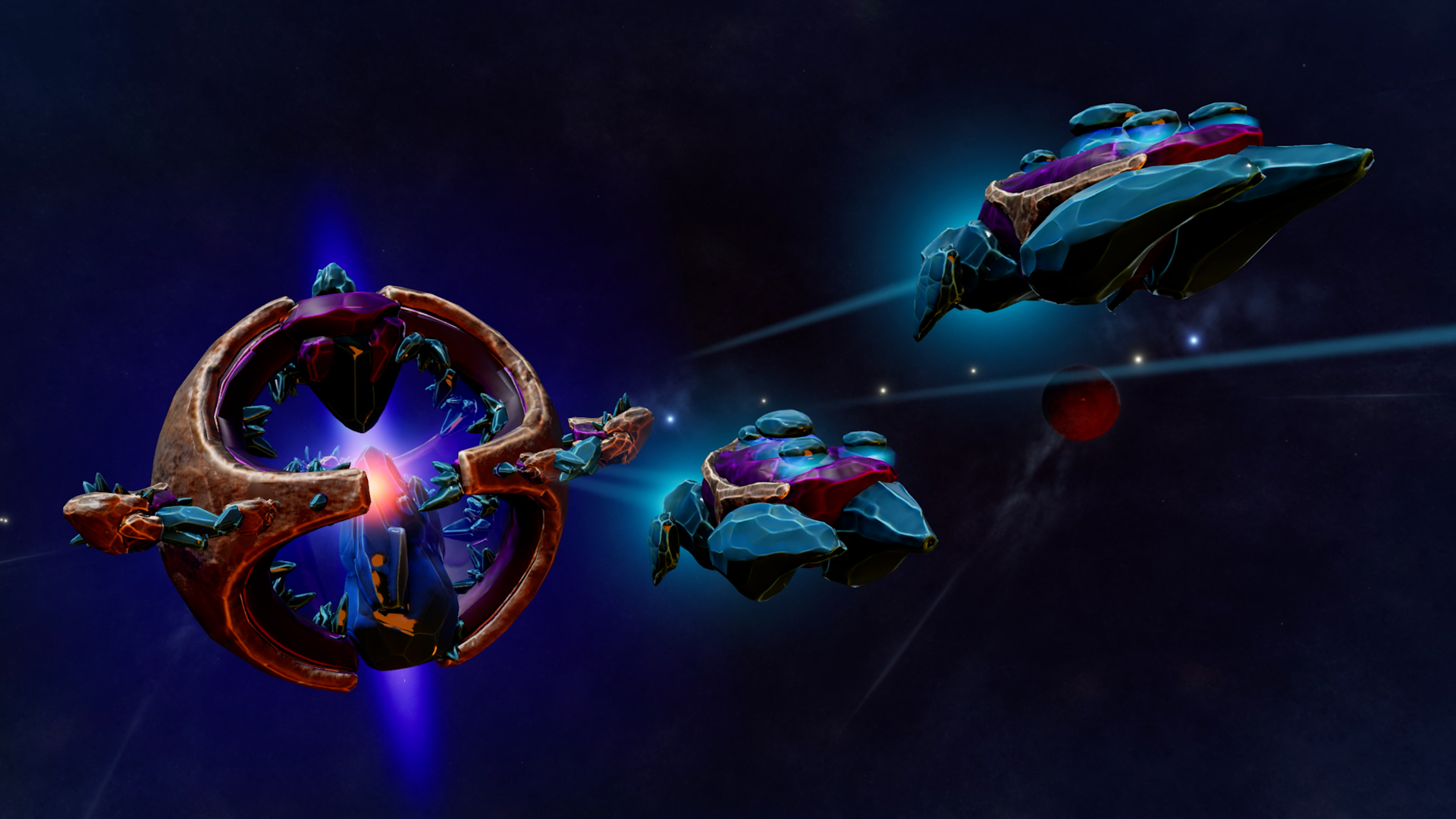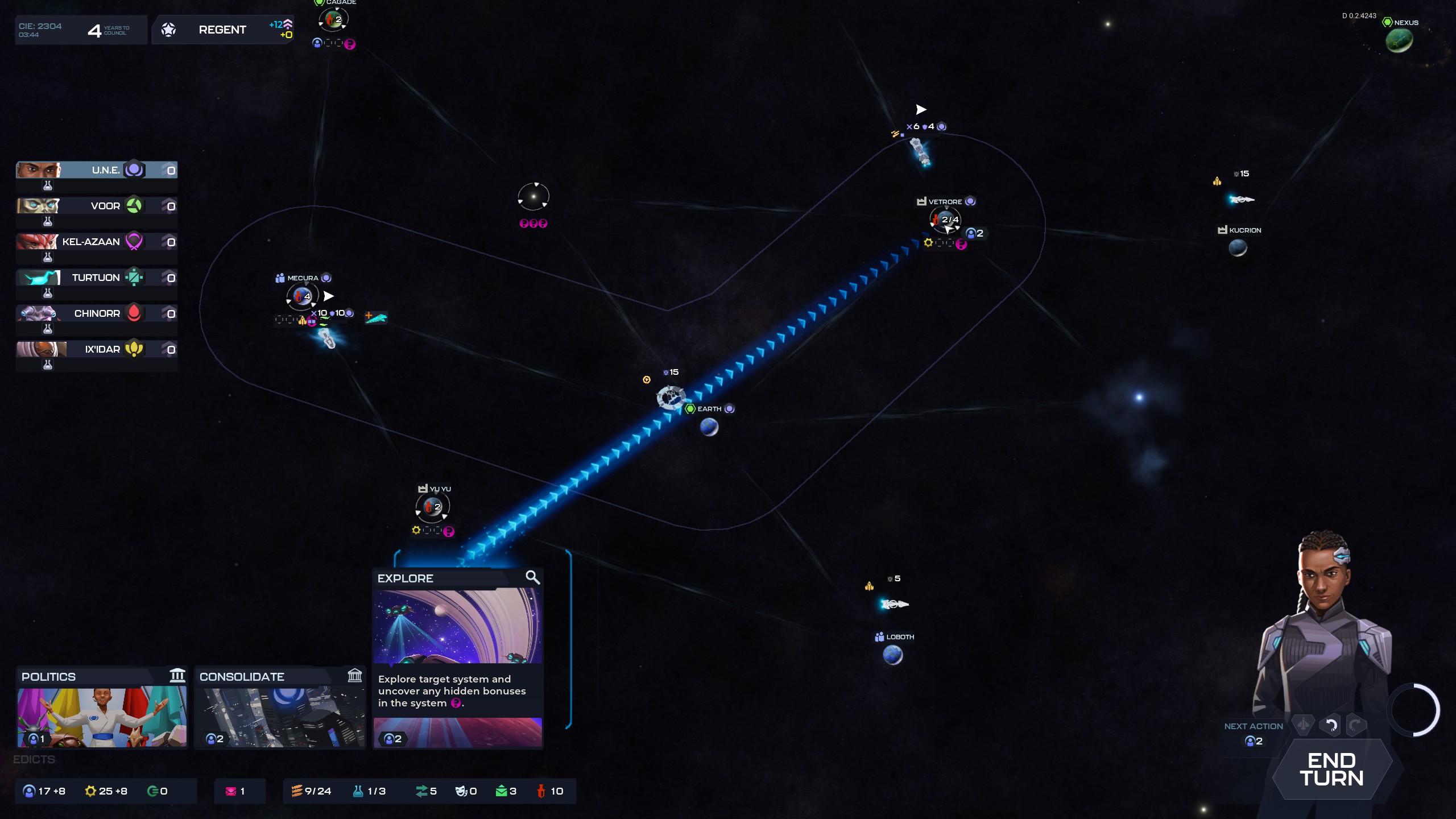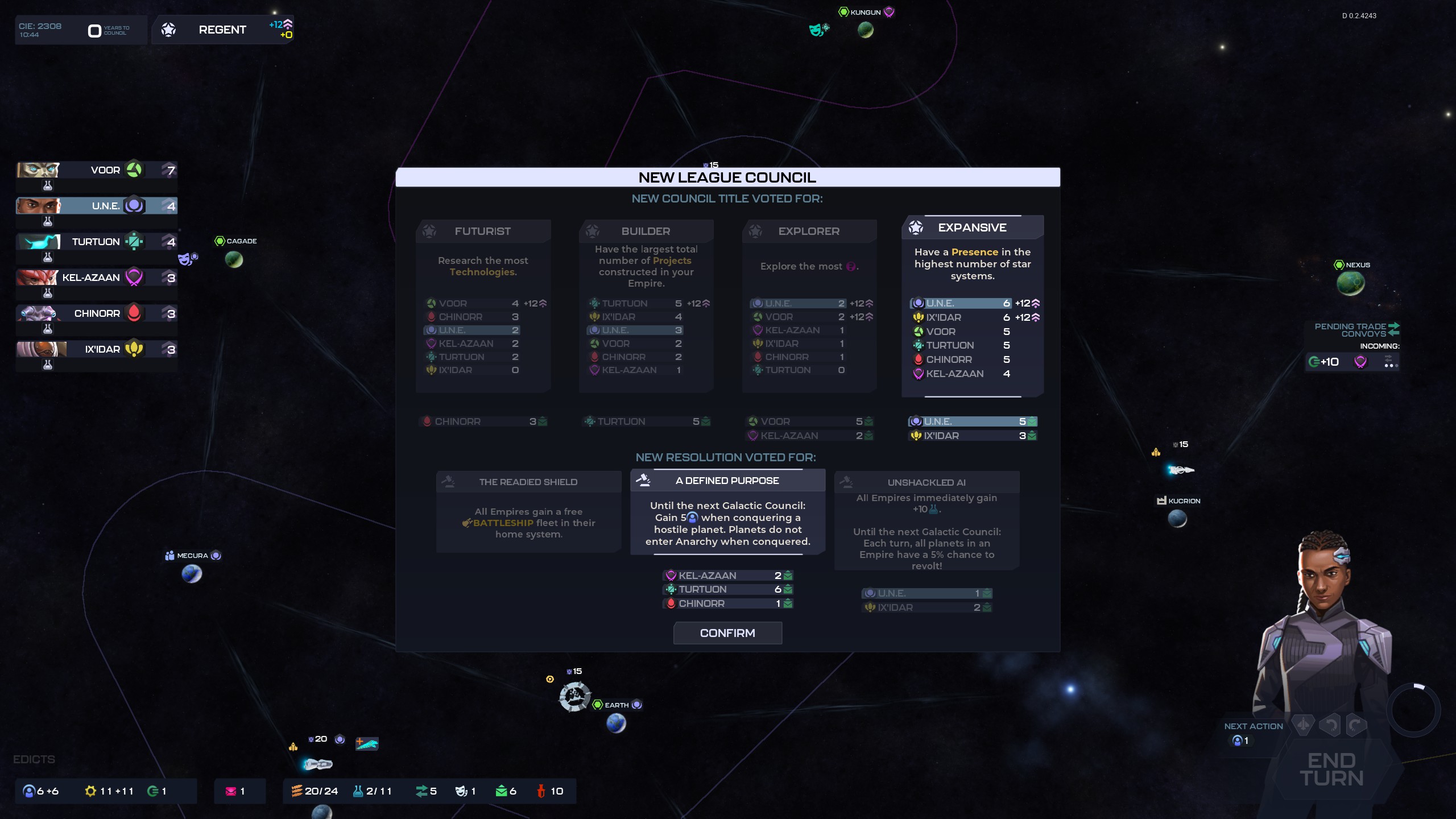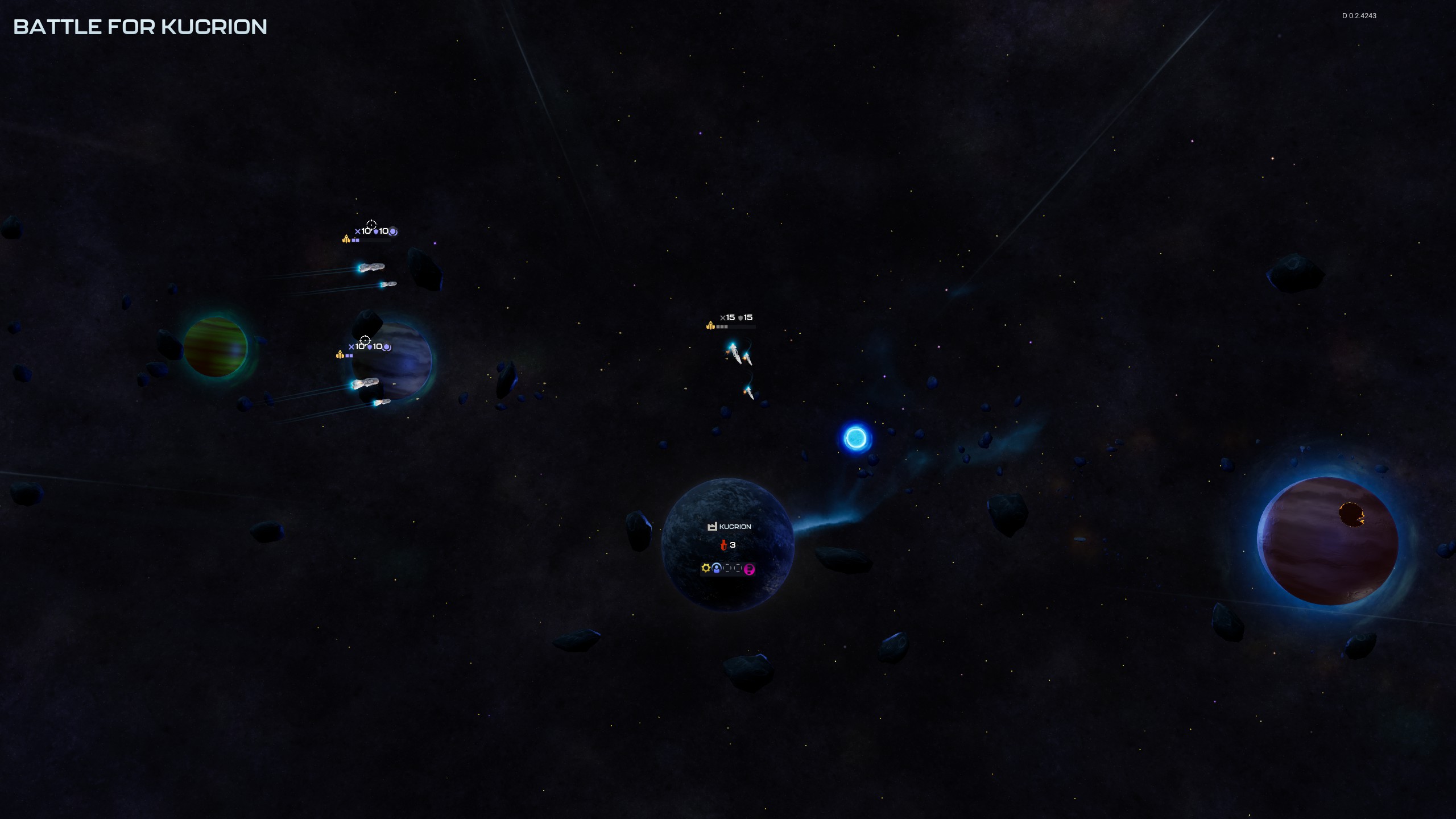
Games of Stellaris can go on for a long time. Conquering the galaxy requires patience. But not so much in Stellaris Nexus, a brisk spin-off developed by Whatboy Games and published by Paradox. The hook is that you can complete a game in around an hour. So how, you might be wondering, has the studio managed to condense all of Stellaris's novelties and complexities and roleplaying shenanigans into such short games? That answer, unfortunately, is that it hasn't.
Stellaris Nexus's connection to the original game is extremely thin. The art, language and premade empires do evoke its progenitor, but mechanically this is an entirely different style of 4X—like a very trimmed down Twilight Imperium with big board game vibes—focused largely on conquest where you'll make a small number of decisions per turn.

For those who find the sandbox format of 4Xs like Stellaris intimidating or too unstructured, there's something to be said for the spin-off's approach. In the Succession mode available in the Steam Next Fest demo, players must accrue Succession points and squabble over the titular Nexus, a planet at the centre of the galaxy. At intervals throughout the match, you'll meet with your fellow members of the New League Council to vote on titles and resolutions to further your goals. If you've researched more technology than the other empires, for instance, you'll be able to get the Futurist title and a reward of Succession points.
By forming pacts with other empires, spreading your culture to other worlds, building megastructures and levelling up your leader, you'll gain yet more Succession points, and once you hit 100, victory is yours. It's relatively straightforward for a 4X, where your objectives and the path to victory are extremely clear.
Every turn, you have a limited number of actions determined by how much Support you have and what edicts you currently have in your hand—these are essentially cards that let you conduct diplomacy, send out trade envoys, research new technology and spy on your galactic neighbours. Support can also be spent on moving your fleets, building new ships and structures, and annexing worlds, though many actions also cost additional resources that you'll need to generate and occasionally loot.

It succeeds in maintaining a brisk pace while still preserving the broad 4X pillars, but even before I'd finished my first game I was just dreadfully bored. The actions you'll be taking every turn are all just generic sci-fi strategy fare, and none of the flavour from Stellaris makes its way over to the spin-off. One edict lets you search worlds for anomalies, and when you find one you get a perfunctory message about finding some debris or resources and you move on. It's dry across the board. None of the empires really have an identity beyond some very basic mechanical differences, and simply fall into the categories of 'good at war' or 'good at research'.
This is especially disappointing because the Steam page specifically pitches the game to roleplayers, not just competitive grognards, but there doesn't seem to be any space for that kind of playstyle. You can't customise your empire, aside from unlocking new tech, which serves a purely practical purpose, and while you do have some choices about how you develop your leader whenever you level up, the choices are so few and lacking in flavour that it never really feels like you're developing your own space-faring society. You're making pragmatic choices to quickly win the game.
Stellaris Nexus can be played against AI opponents, but Whatboy Games and Paradox are really pushing the multiplayer side of things, where you can grab up to five friends for a quick war or jump into matchmaking. Because the AI opponents don't really display much personality, it's really up to human players to make things interesting. A human rival who you need to negotiate with makes for an inherently more engaging opponent. But this isn't much of a hook when the meatier Paradox grand strategy games are already fantastic multiplayer romps.

The first time I played Stellaris was at a large LAN event and it's still one of my favourite playthroughs. We spent the whole day wheeling and dealing, splintering off into little alliances and making backroom deals. There were betrayals, unexpected ententes and even a bit of IRL espionage. It was wonderful. And that sort of thing can't really be replicated by a game that lasts an hour and offers fewer options.
Pretty much everything that makes Stellaris a 4X I'd recommend has been cut or significantly reduced in Stellaris Nexus, and the ability to finish a game in an hour doesn't really make up for that, especially when the lack of engaging decisions or features that support emergent narratives mean that it outstays its welcome even sooner.







